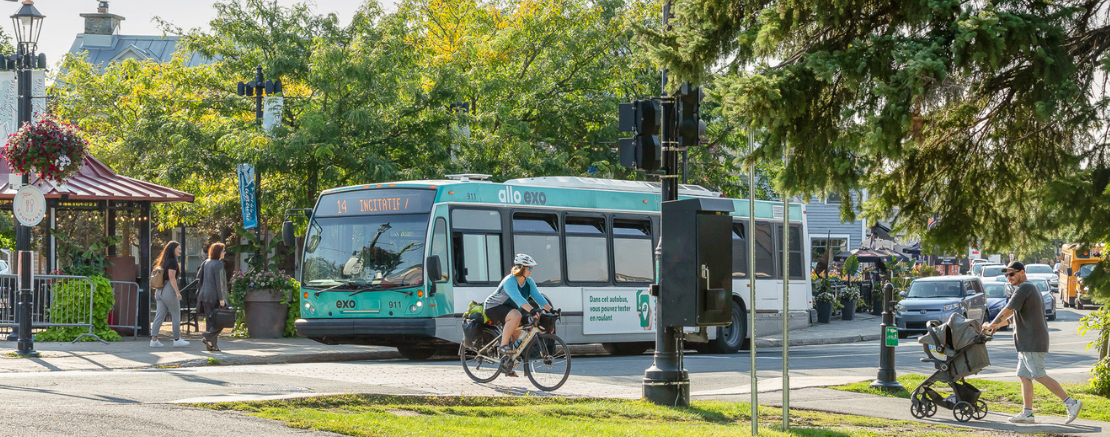Moving toward new mobility solutions
Rethinking mobility in the metropolitan area
With travel habits changing, the public is looking for simple, efficient and sustainable transit solutions to meet their diverse needs.
The choices for public transit services is increasing—for example, with the development of on-demand transport, the arrival of the REM and the advent of driverless electric shuttles. At the same time, alternative modes of transportation, such as bike and car sharing, are gaining popularity.
The public is faced with numerous transit options and consequently wants to make an informed decision, especially about his use of a private vehicle.
An international movement
In the Greater Montréal area, as in other major cities abroad, our communities face similar challenges, such as
Traffic
Growing vehicle fleet
Pollution
Urban sprawl
These perennial problems cry out for profound reflection and joint action by actors from all backgrounds. In terms of mobility, decision makers understand that investing in public transit is a powerful driver that generates structuring benefits for society as a whole, rather than a diversion of funds earmarked for the road system.
In recent years, many urban agglomerations abroad have implemented solutions to increase access to mobility services in their territories, ranging from traditional public transit (metro, bus) to emerging or alternative modes of transportation (river shuttle, driverless shuttle, car sharing, car pooling, taxi, cycling, etc.).
Promoting sustainable modes of transportation and improving mobility services for the entire public, no matter what their needs are, significantly contributes to healthier, more resilient living environments.
To learn from their experiences, the ARTM maintains regular communications with the jurisdictions that partially or fully deploy integrated mobility services or MaaS (Mobility as a Service).
Learn more about integrated mobility
Chrono: the project’s experimental platform
Property of the ARTM, the Chrono application was developed in Montréal in 2018 with the involvement of the region’s transit companies. This application combines public transit services, active modes of transportation, such as cycling and BIXI and Communauto.
Learn moreMontréal in Common, an innovation community
The Montréal in Common innovation community has made conducting experiments in the Chrono app possible thanks to the $50 million prize awarded to them by the Ville de Montréal as part of the Government of Canada’s Smart Cities Challenge.
For these experiments to succeed, residents were encouraged to participate so that the Chrono team could develop optimal solutions addressing user needs.
Reading and reloading the OPUS card with a mobile app.
